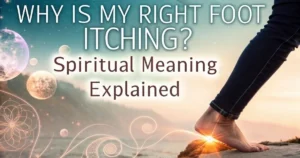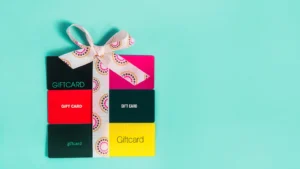In English, many words sound so much alike that they confused even native speakers. A common mix-up involves “Better Than or Better Than” – they’re only separated by one letter, yet they serve entirely different purposes. I remember the first time I learned the difference. It might seem small, but using the wrong word can make a sentence unclear or even change its meaning. Take the example: “She’s better than her brother at tennis.” That’s correct. Now swap in “then,” and it suddenly loses all sense. At a glance, it may look right, but in that moment, it trips people up. Learning this distinction is crucial for clear, accurate communication.
From my own experience teaching grammar, I’ve seen students get stuck on words that look and sound close, but mean very different things. This issue shows up commonly among learners and even fluent speakers. Understanding the difference between “then” and “than” is one of those moments where you feel the full power of language click. It’s a shift that feels big, with real impact. We often rush, and so at first, it might seem like a simple error, but it really matters. They are not the same, and it should be treated with care – even in casual writing.
The Core Confusion: ‘Then’ vs. ‘Than’ in Plain English
Both “then” and “than” are short, commonly used words, but they have distinct meanings and functions.
Quick Comparison Table
| Word | Function | Meaning | Example |
| Then | Adverb/Noun | Refers to time or sequence | “We went to dinner, then to a movie.” |
| Than | Conjunction/Preposition | Used for comparisons | “She is taller than her brother.” |
Remember:
- Then relates to time.
- Then it is used for comparisons.
What ‘Than’ Really Means (and When to Use It)
“Than” is primarily used to make comparisons between two or more elements.
Common Uses of “Than”
- Comparing qualities: “This book is more interesting than the last one.”
- Comparing quantities: “He has more experience than his colleague.”
- Preferences: “I would rather walk than drive.”
Examples in Sentences
- “She is smarter than her brother.”
- “I’d rather have tea than coffee.”
- “This car is faster than that one.”
Common Idioms with “Than”
- “More than meets the eye” – There’s more to something than it appears.
- “Better late than never” – It’s better to do something late than not at all.
- “Easier said than done” – Something is more difficult to do than to talk about.
What ‘Then’ Really Means (and When to Use It)
“Then” is used to indicate time or sequence.
Uses of “Then”
- Sequence of events: “We had dinner, then watched a movie.”
- Time reference: “Back then, I lived in New York.”
- Conditional statements: “If it rains, then we’ll cancel the picnic.”
Examples in Sentences
- “Finish your homework, then you can play.”
- “He was the president then.”
- “If you’re ready, then let’s go.”
Common Phrases with “Then”
- “And then some” – More than what was expected.
- “Now and then” – Occasionally.
- “Since then” – From that time until now.
Why People Confuse ‘Than’ and ‘Then’: Key Grammar Pitfalls
The confusion between “than” and “then” often arises due to: Curiosity
- Similar pronunciation: Both words sound alike, especially in rapid speech.
- Autocorrect errors: Typing mistakes can lead to incorrect substitutions.
- Lack of understanding: Not knowing the distinct functions of each word.
Real-World Example
- Incorrect: “I would rather go to the movies than stay home.”
- Correct: “I would rather go to the movies than stay home.”
In the incorrect sentence, “then” suggests a sequence, not a preference.
Quick Grammar Rule Check: Think Before You Write
A simple way to decide between “than” and “then”:
- Are you making a comparison? Use “than.”
- Are you referring to time or sequence? Use “then.”
Red Flag Examples
- Incorrect: “No sooner than he arrived, it started raining.”
- Correct: “No sooner than he arrived, it started raining.”
The phrase “no sooner than” is used to indicate that one event quickly follows another.
10 Common Sentence Examples (Correct vs Incorrect)
| Incorrect Sentence | Why It’s Wrong | Correct Sentence |
| “She is better than her sister at math.” | “Then” implies time, not comparison. | “She is better than her sister at math.” |
| “I would rather eat at home than go out.” | “Then” suggests sequence, not preference. | “I would rather eat at home than go out.” |
| “He is taller than I.” | “Then” is incorrect; comparison is intended. | “He is taller than I.” |
| “First we went shopping, then we had lunch.” | “Than” is used for comparison, not sequence. | “First we went shopping, then we had lunch.” |
| “If you finish your work, then you can relax.” | “Then” is incorrect in conditional statements. | “If you finish your work, then you can relax.” |
| “She is more talented than her peers.” | “Then” is incorrect; comparison is intended. | “She is more talented than her peers.” |
| “We had dinner, then watched a movie.” | “Than” is incorrect; sequence is intended. | “We had dinner, then watched a movie.” |
| “He would rather play games than study.” | “Then” suggests sequence, not preference. | “He would rather play games than study.” |
| “Back then, things were different.” | “Than” is incorrect; time reference is intended. | “Back then, things were different.” |
| “She is faster than her brother.” | “Then” is incorrect; comparison is intended. | “She is faster than her brother.” |
Memory Tricks That Work
To remember the difference between “than” and “then”:
- “Than” is for comparisons. Both words have an “a.”
- “Then” is for time. Both words have an “e.”
Mnemonic Devices
- “I would rather be smart than confused.”
- “First do your homework, then play.”
These sentences reinforce the correct usage of each word.
Idiomatic Phrases You Should Get Right
Some common phrases use “than” or “then” correctly:
Phrases with “Than”
- “Better than ever” – Improved compared to before.
- “More than likely” – Very likely.
- “Other than that” – Except for that.
Phrases with “Then”
- “And then some” – More than expected.
- “Now and then” – Occasionally.
- “Since then” – From that time until now.
Using the correct word in these phrases is essential for clear communication.
Final Thoughts
Understanding the difference between “than” and “then” is crucial for effective communication.
Key Takeaways
- “Than” is used for comparisons.
- “Then” is used to indicate time or sequence.
By remembering these distinctions and practicing their usage, you can avoid common mistakes and enhance your writing clarity.
FAQS:
What’s the difference between “than” and “then”?
“Than” is used for comparisons, like “She is faster than him.” “Then” is used for time or sequence, like “We ate dinner, then went home.”
Can “then” ever be used in comparisons?
No, “then” should not be used in comparisons. That’s a common mistake. Always use “than” when comparing qualities, quantities, or preferences.
Why do people confuse “than” and “then”?
They sound similar and are short, common words. Plus, autocorrect or typing errors often substitute one for the other unintentionally.
How can I remember which to use?
Try this trick:
- Use “thAn” fcomparisonsons (both have A)
- Use “thEn” for time (both have E)
Is “than” ever used to refer to time?
No. “Than” is only used for comparisons. For time or order of events, always use “then.”











